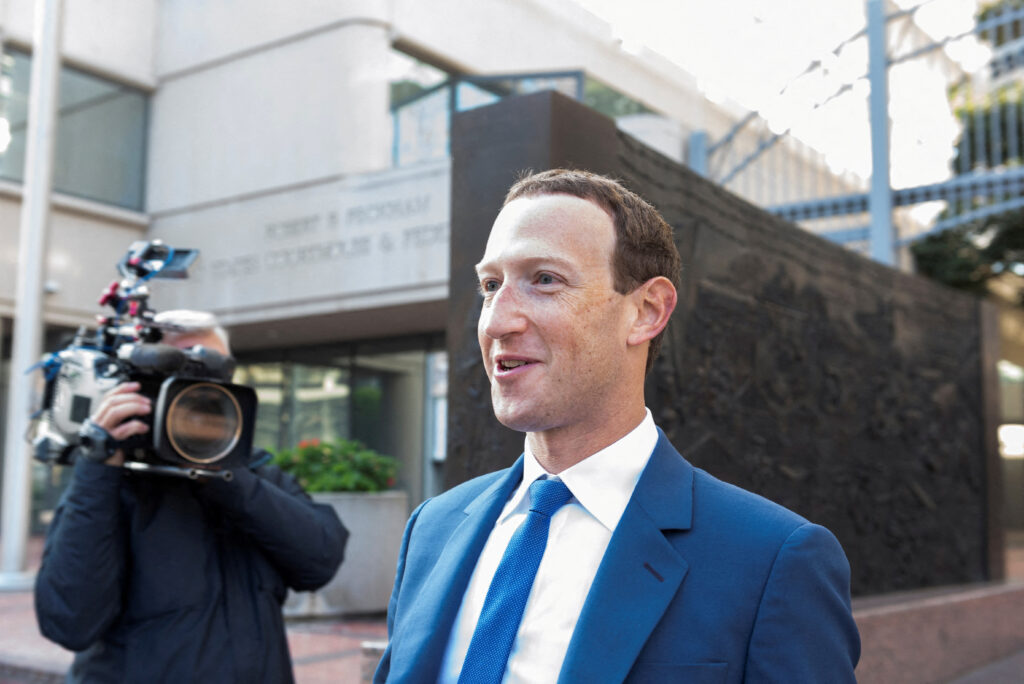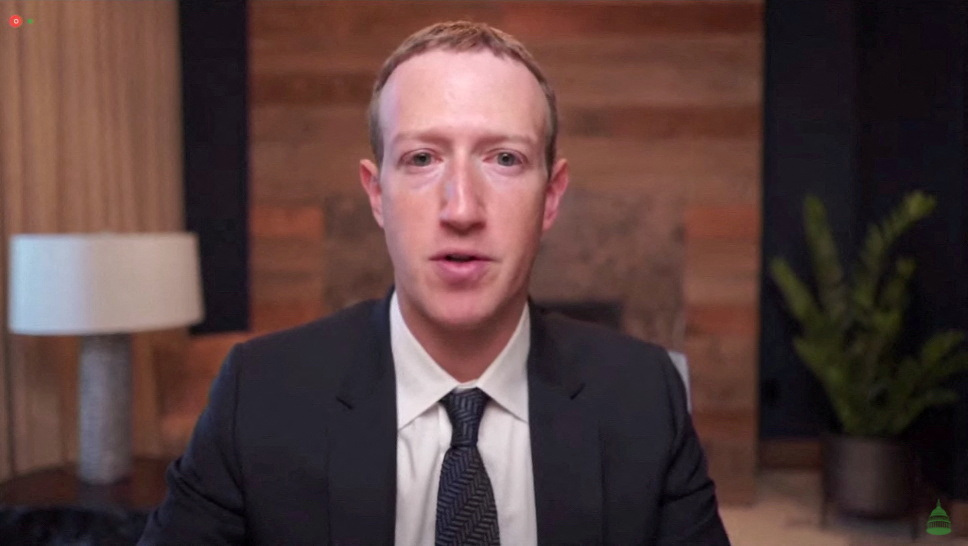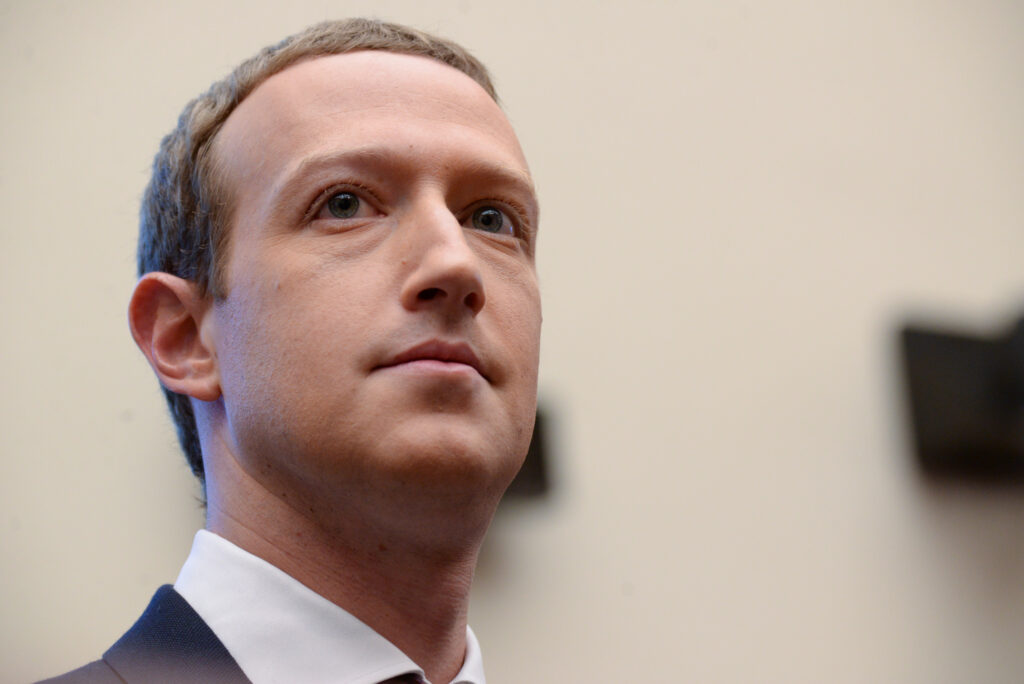In the ever-evolving landscape of the digital age, few names stand as prominently as that of Mark Zuckerberg. As a trailblazer in technology and social media, Zuckerberg’s journey from a Harvard dorm room to becoming one of the most influential figures in the tech industry is nothing short of remarkable. Born on May 14, 1984, in White Plains, New York, Mark Zuckerberg displayed an early aptitude for coding and a passion for innovation that would eventually lead to creating a platform that would change how the world connects and communicates.
Zuckerberg’s story is not merely one of success but also of resilience in facing challenges and controversies. From the inception of Facebook to his forays into philanthropy and his vision for the future, this article delves into the life and impact of a man who has left an indelible mark on the digital landscape.
Early Life and Education
Mark Zuckerberg’s journey to becoming a tech titan began with his humble beginnings and a family that encouraged his curiosity.
Zuckerberg’s Upbringing and Family Background

Mark Zuckerberg was the second of four children born on May 14, 1984, in White Plains, New York. His father, Edward Zuckerberg, was a dentist, and his mother, Karen Zuckerberg, worked as a psychiatrist. Growing up in the quiet suburbs, Mark was exposed to computers and technology from an early age, thanks partly to his father’s dental practice, where Edward Zuckerberg used computers for various administrative tasks.
Zuckerberg’s family environment fostered his interest in technology and innovation. His parents recognized his early passion for computers and coding and provided him with the tools and encouragement to explore this interest. In fact, by the time Mark was just 12 years old, he had already created a messaging program named “Zucknet” for his family’s use, connecting the computers in their home.
This supportive family backdrop set the stage for the young Zuckerberg’s future endeavors, providing a nurturing environment for him to develop the skills that would eventually lead to the creation of Facebook.
Academic Journey: From Harvard to Facebook’s Inception
Mark Zuckerberg’s academic journey was marked by a relentless pursuit of knowledge and a curiosity that knew no bounds. He attended Ardsley High School in New York, where his programming and software development talents continued to flourish. However, during his time at Phillips Exeter Academy, an elite preparatory school in New Hampshire, he truly began to distinguish himself in the world of technology.
After graduating from Phillips Exeter Academy, Zuckerberg embarked on the next phase of his academic journey at none other than Harvard University. At Harvard, the seeds of Facebook were sown, albeit unknowingly at the time. In his sophomore year, Zuckerberg and his roommates Andrew McCollum, Eduardo Saverin, Chris Hughes, and Dustin Moskovitz launched “The Facebook” on February 4, 2004. The initial purpose was to create an online directory for Harvard students, allowing them to connect and share information more easily.
Little did they know that this project would quickly evolve into a global phenomenon, fundamentally altering how people connect and communicate. Zuckerberg’s visionary approach to digital networking was born out of his academic environment, where the exchange of ideas and collaboration was encouraged.
The Birth of Facebook
The story of Facebook’s inception reads like a modern-day legend, with its roots firmly planted in a Harvard dorm room and its growth marked by innovation and unexpected challenges. In this section, we’ll journey back to the early days when Facebook was just a spark of an idea and explore the hurdles Mark Zuckerberg and his team faced as they navigated the uncharted waters of social media.
The Dorm Room Beginnings of Facebook
It all began in Kirkland House, one of Harvard University’s residential houses, in the fall of 2003. Mark Zuckerberg, a sophomore at the time, and his college roommates embarked on a project to reshape how the world connects. What started as a small-scale endeavor, initially named “The Facebook,” was born out of a desire to digitize Harvard’s Facebook, a physical directory containing photos and basic information about students.
Zuckerberg and his roommates Andrew McCollum, Eduardo Saverin, Chris Hughes, and Dustin Moskovitz worked tirelessly to bring their vision to life. On February 4, 2004, “Facebook” was officially launched within the confines of Harvard University, offering students a novel way to connect with classmates, share information, and build an online identity. The response was immediate and overwhelming, with thousands of Harvard students signing up within the first 24 hours.
Growth and Early Challenges of the Social Media Platform
The rapid success of “The Facebook” at Harvard laid the groundwork for expansion. Zuckerberg and his team soon recognized the platform’s potential to transcend the confines of the university. In June 2004, they took a bold step and opened the platform to other Ivy League institutions and, later, to colleges and universities across the United States.
With each new expansion, Facebook’s user base swelled, and its influence grew. However, this rapid growth also brought unforeseen challenges. One of the earliest obstacles was legal. Zuckerberg faced allegations of intellectual property theft and breach of contract from fellow Harvard students Cameron and Tyler Winklevoss and Divya Narendra, who claimed he had stolen their idea for a social network. Zuckerberg ultimately settled with them, but this legal battle reminded them of the complexities of creating a global social media empire.
Additionally, as Facebook expanded beyond the confines of academia and into the public sphere, privacy, data security, and user safety issues began to emerge. These early challenges forced the company to adapt and implement policies to protect its users and their information.
In retrospect, the birth of Facebook in a Harvard dorm room was just the beginning of a digital revolution. Mark Zuckerberg and his team’s relentless pursuit of connecting people and sharing information reshaped how we interact online and how businesses and individuals communicate and market themselves.
Zuckerberg’s Impact on Social Media

Mark Zuckerberg’s influence on social media is undeniable, with Facebook standing as a testament to his vision and commitment to transforming online communication. In this section, we will explore how Zuckerberg’s brainchild, Facebook, evolved its features and user experience while fundamentally reshaping how people connect and communicate on the internet.
The Evolution of Facebook’s Features and User Experience
From its humble beginnings as a Harvard University project to its status as a global social media powerhouse, Facebook has undergone significant evolution. Zuckerberg and his team continually innovated, adding features that enhanced user experience and kept the platform relevant.
1. Profile Pages and News Feed: Facebook’s introduction of user profile pages and the News Feed in 2006 revolutionized how people interacted online. Users could now share their thoughts, photos, and updates in real time, creating a dynamic and engaging digital space.
2. Expansion to Mobile: Recognizing the shift towards mobile devices, Zuckerberg spearheaded the development of Facebook’s mobile app. This move not only made the platform accessible to users on the go but also paved the way for the rise of mobile social networking.
3. Acquisition and Integration: Facebook’s strategic acquisitions, such as Instagram in 2012 and WhatsApp in 2014, demonstrated Zuckerberg’s commitment to staying at the forefront of social media. These platforms were integrated into the Facebook ecosystem, broadening its reach and appeal.
4. Video and Live Streaming: The introduction of video sharing and live streaming features allowed users to share their experiences in real-time, making Facebook a hub for multimedia content.
5. Virtual Reality: Facebook’s acquisition of Oculus VR in 2014 signaled the company’s interest in virtual reality technology. This move hinted at Zuckerberg’s belief in VR’s potential to revolutionize future social interaction.
Facebook’s Role in Shaping Online Communication
Beyond its feature enhancements, Facebook was pivotal in shaping how people communicate and connect online. Zuckerberg’s platform brought several profound changes to the digital landscape:
- Connectivity: Facebook connected people across geographical boundaries, allowing friends and family to stay in touch and enabling individuals to build global networks. It facilitated the rekindling of old friendships and the forging of new ones.
- Digital Identity: Facebook allows users to curate their online identities, sharing personal interests, achievements, and milestones. It became a digital reflection of one’s life journey.
- Social Impact: The platform became a catalyst for social movements, giving voice to various causes and allowing users to organize and mobilize for change.
- Business and Marketing: Facebook’s advertising and business pages transformed digital marketing. It gave businesses unprecedented access to a global audience and powerful targeting tools.
Philanthropy and Initiatives

Mark Zuckerberg’s journey extends far beyond technology and social media.
Zuckerberg’s Commitment to Philanthropy
While Mark Zuckerberg’s name is often associated with Facebook, his dedication to philanthropy has become an equally significant aspect of his legacy. In 2010, Zuckerberg joined The Giving Pledge, a commitment by some of the world’s wealthiest individuals to donate a substantial portion of their wealth to charitable causes during their lifetime. This pledge reflected his desire to leverage his wealth for the greater good of humanity.
One of the most notable acts of Zuckerberg’s philanthropy was his announcement, along with his wife, Priscilla Chan, on the birth of their first child, Maxima, in 2015. They pledged to donate 99% of their Facebook shares, then valued at billions of dollars, to address pressing global challenges. This move marked a significant shift in Zuckerberg’s focus from merely accumulating wealth to actively using it as a force for positive change.
Overview of the Chan Zuckerberg Initiative
The Chan Zuckerberg Initiative (CZI) embodies Mark Zuckerberg and Priscilla Chan’s philanthropic vision. Established in December 2015, CZI is a limited liability company that operates as a philanthropic organization. Its mission is ambitious: “to advance human potential and promote equality in areas such as education, scientific research, criminal justice reform, and affordable housing.”
Underlying this mission is believing in the power of innovation and technology to drive positive social change. CZI channels its resources towards initiatives and projects that have the potential to address some of the world’s most pressing challenges. Key areas of focus include:
- Education: CZI seeks to reimagine and improve education by supporting innovative approaches and initiatives to give every child a high-quality education, regardless of their background or circumstances.
- Science and Research: The organization invests in scientific research and technology that can drive disease prevention, neuroscience, and genomics breakthroughs. CZI believes in the power of research to unlock new solutions to complex problems.
- Criminal Justice Reform: CZI is committed to advancing criminal justice reform efforts that promote fairness, equity, and a more just society. This includes addressing mass incarceration and racial disparities in the criminal justice system.
- Affordable Housing: Recognizing the importance of stable and affordable housing, CZI supports initiatives to expand access to housing opportunities and address homelessness.
- Immigration Reform: The organization is involved in efforts to advocate for sensible immigration policies that provide opportunities for immigrants and promote integration and inclusion.
The Chan Zuckerberg Initiative operates with a long-term perspective, seeking to drive systemic change rather than offering quick-fix solutions. It collaborates with various partners, including nonprofits, researchers, and policymakers, to achieve its goals.
Controversies and Challenges

Mark Zuckerberg’s journey in the tech industry has been marked by innovation, success, controversies, and challenges.
Privacy Concerns and Data Scandals
One of the most significant challenges to Mark Zuckerberg’s leadership came from privacy concerns and data scandals that shook the foundation of Facebook. These controversies raised questions about the company’s commitment to safeguarding user data and respecting user privacy.
1. Cambridge Analytica Scandal (2018): Perhaps the most infamous of these controversies was the Cambridge Analytica scandal. It was revealed that the political consulting firm Cambridge Analytica had harvested the personal data of tens of millions of Facebook users without their consent. This data was then used to create targeted political advertising during the 2016 U.S. presidential election. The scandal prompted widespread outrage and called for greater transparency and accountability from Facebook.
2. User Data Misuse: Besides the Cambridge Analytica scandal, Facebook has faced criticism for various data misuse and breaches. These incidents raised concerns about the company’s ability to protect user data and highlighted the challenges of managing a platform with billions of users’ personal information.
3. Privacy Settings and Consent: Facebook has also faced scrutiny over its privacy settings and the complexity of its consent mechanisms. Critics argued that users often needed help understanding and controlling how their data was used on the platform.
Zuckerberg’s Testimony Before Congress
In the wake of these privacy scandals and growing public concern, Mark Zuckerberg found himself in the spotlight, testifying before the U.S. Congress in April 2018. This high-profile appearance marked a critical moment in Facebook’s history and underscored the broader debate surrounding technology, privacy, and regulation.
During the hearings, Zuckerberg faced tough questions from lawmakers about Facebook’s data practices, privacy policies, and the company’s steps to prevent similar incidents in the future. He acknowledged the company’s mistakes and committed to improving user privacy and data protection. The hearings also shed light on the need for comprehensive regulations governing the tech industry.
While some saw Zuckerberg’s testimony as a necessary step toward accountability, it also highlighted the complex challenges of managing a platform of Facebook’s scale and impact. It sparked discussions about the balance between innovation and user protection and raised questions about the role of government in regulating social media platforms.
Zuckerberg’s Future Endeavors
Mark Zuckerberg’s influence in the tech industry extends beyond his past achievements.
His Perspective on the Future of Technology and Society
Mark Zuckerberg’s vision for the future is deeply rooted in his belief in the power of technology to drive positive change. Over the years, he has articulated his views on several key areas that he believes will shape the future:
1. Connectivity for All: Zuckerberg envisions a world where everyone can access the internet. Through initiatives like Internet.org (now known as Free Basics), he has worked to bring internet access to underserved regions, believing that connectivity can open doors to education, economic opportunities, and global communication.
2. Artificial Intelligence (AI): Zuckerberg sees AI as a transformative force that can enhance our lives, from personalized content recommendations to medical diagnoses. He has invested in AI research and development to make AI systems safer and more accessible.
3. Virtual Reality (VR) and Augmented Reality (AR): As demonstrated by Facebook’s acquisition of Oculus VR, Zuckerberg believes VR and AR have the potential to revolutionize how we interact with technology. He envisions a future where VR and AR technologies enable more immersive and collaborative experiences, from gaming to remote work.
4. Privacy and Security: In light of the privacy controversies Facebook has faced, Zuckerberg has emphasized the importance of user privacy and data security. He envisions a future where individuals have more control over their data and can trust their platforms.
Upcoming Projects and Ventures
Mark Zuckerberg’s future endeavors align closely with his vision for the tech industry’s future. Here are some notable projects and ventures he is actively pursuing:
1. Metaverse: Zuckerberg has been vocal about his interest in building the metaverse. This virtual, interconnected space spans multiple digital platforms and allows users to interact in a more immersive way. This ambitious project aims to combine virtual reality, augmented reality, and social networking elements to create a shared digital universe.
2. Cryptocurrency and Blockchain: In 2019 Facebook announced the Libra cryptocurrency project (now rebranded as Diem). While it faced regulatory challenges and underwent transformations, Zuckerberg remains interested in the potential of blockchain technology and its applications in finance and beyond.
3. Health and Science: Through the Chan Zuckerberg Initiative, Zuckerberg and his wife, Priscilla Chan, have invested significantly in health and science research. Their goal is to accelerate disease prevention, neuroscience, and education progress, focusing on long-term, systemic change.
4. Innovation Labs: Facebook Reality Labs, led by Zuckerberg, focuses on developing cutting-edge technologies in VR and AR. This includes the development of smart glasses, which are seen as a stepping stone toward more immersive AR experiences.
Legacy and Influence

Mark Zuckerberg’s impact on the tech industry is nothing short of transformative. In this section, we will delve into how he has influenced the tech sector and examine his place in the annals of entrepreneurship.
How Mark Zuckerberg Has Influenced the Tech Industry
Mark Zuckerberg’s influence on the tech industry is far-reaching and multifaceted, leaving an indelible mark on how we connect online and the trajectory of technology. Here are some key ways in which he has shaped the industry:
1. Redefining Social Networking: Zuckerberg’s Facebook creation revolutionized how people connect and communicate. The platform’s user-centric approach to social networking set a new standard for user engagement, paving the way for the rise of other social media giants.
2. The Era of Mobile: Under Zuckerberg’s leadership, Facebook successfully transitioned to a mobile-first platform, anticipating the shift in user behavior towards smartphones and tablets. This strategic move ensured Facebook’s continued relevance in the mobile age.
3. Mergers and Acquisitions: Zuckerberg’s willingness to acquire promising companies like Instagram and WhatsApp demonstrated his foresight in recognizing emerging trends and his ability to integrate these platforms into the Facebook ecosystem, solidifying his influence in the social media landscape.
4. Philanthropy and Social Impact: Beyond his work at Facebook, Zuckerberg’s philanthropic endeavors through the Chan Zuckerberg Initiative underscore his commitment to using technology and wealth to address global challenges, leaving a legacy of social responsibility for the tech industry.
5. Innovation in VR and AR: Zuckerberg’s interest in virtual and augmented reality positions him at the forefront of immersive technology. His ambitious goal of creating the metaverse has the potential to reshape the way we interact with digital spaces.
His Place in the History of Entrepreneurship
Mark Zuckerberg’s journey from a Harvard dorm room to becoming one of the world’s most influential entrepreneurs is a compelling story of innovation, perseverance, and adaptability. His place in the history of entrepreneurship is undeniable:
1. Tech Visionary: Zuckerberg’s ability to foresee trends and adapt Facebook’s offerings accordingly has cemented his reputation as a tech visionary. He consistently pushed the envelope in social media, setting trends that others followed.
2. Impact on Startups: Zuckerberg’s success with Facebook has inspired countless entrepreneurs and startups to pursue innovative ideas, especially in social networking and digital communication.
3. Entrepreneurial Resilience: His handling of challenges, such as the Cambridge Analytica scandal and congressional testimonies, highlights his entrepreneurial resilience. Zuckerberg’s capacity to learn from adversity and adapt has been a source of inspiration for emerging business leaders.
4. Philanthropic Leadership: Through the Chan Zuckerberg Initiative, Zuckerberg has extended his influence into philanthropy, showing that entrepreneurship can be a force for positive social change. His commitment to using wealth to address societal issues sets an example for other entrepreneurs.
Conclusion
Mark Zuckerberg’s journey from a college dorm room to the helm of one of the world’s most influential tech companies, Facebook, is a remarkable testament to his entrepreneurial spirit, vision, and adaptability. Throughout his career, he has shaped the tech industry and left a lasting imprint on how we connect, communicate, and envision the future of technology.
Zuckerberg’s influence on the tech industry is multifaceted. He pioneered the concept of social networking, redefining how billions of people across the globe interact online. His strategic acquisitions, such as Instagram and WhatsApp, have consolidated Facebook’s dominance in the social media landscape. At the same time, his ability to adapt to the mobile era ensured the platform’s continued relevance.
Beyond the business realm, Zuckerberg’s philanthropic pursuits through the Chan Zuckerberg Initiative exemplify his commitment to using technology and wealth to address some of humanity’s most pressing challenges. His contributions to education, healthcare, and scientific research have the potential to leave a lasting legacy of positive social impact.
In the history of entrepreneurship, Mark Zuckerberg is a prominent tech visionary and leader. His journey has inspired countless startups and innovators to pursue their groundbreaking ideas, and his resilience in the face of controversies and challenges serves as a valuable lesson in entrepreneurial tenacity.
As Zuckerberg’s journey continues into emerging fields like virtual and augmented reality, the tech industry and the world will undoubtedly continue to feel his influence. His ambitious goal of creating the metaverse underscores his commitment to pushing the boundaries of technology and reshaping the way we interact with digital spaces.








